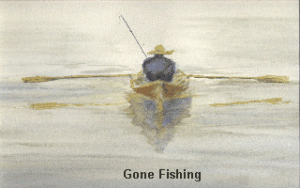Topics List
Black Bear Sightings In Forsyth County
Bees
Snakes, Lizzards, Frogs et al
Wildflowers
Recycling and Waste Disposal
Insect and Pest Id Sites
Spiders
Certified Wildlife Habitats
 Topics listed under this selection are intended to provide basic information and links to more in-depth information. Some topics have their own page, such as water conservation. As topics on this page are expanded they will be moved to a separate page.
Topics listed under this selection are intended to provide basic information and links to more in-depth information. Some topics have their own page, such as water conservation. As topics on this page are expanded they will be moved to a separate page.
Have you seen a snake that you would like to identify. Or possibly you just want more detailed information on a frog or salamander, then visit the UGA SREL site for more information on reptiles and amphibians that live in Georgia and South Carolina.
UGA Savannah River Ecology Laboratory
Top
Would you like to identify an interesting wildflower you may have seen on a hike. Then visit this informative link for Georgia wildflowers. This is a selection of wildflowers from the US Wildflower database.
Need to find a location for recycling purposes or disposal of such items as batteries or CFLs, then check these sites out. The first site provides waste disposal and recycling information specific to Forsyth county. The second is a general search site for locating recycling sites by zip code, you will need to select the type item that is to be recycled. i.e. newspapers, magazines etc. The third site provides information on recycling resources and tools. Also, has locations for electronics recycling locations.
Forsyth county recycling and waste disposal info
General recycling location search
Georgia Recycling Coalition
Top
Insect and Pest Id Sites
Here are a couple of good sites for researching insects and other pests.
Insect Id
Plant Disease Id
Top
The site listed below has activities, facts, pictures and other information for the younger person that is interested in spiders. This link is good for spider identification.
Black Bear Sightings In Forsyth County
– growing North Georgia bear population is expanding southward.
Sightings of black bears are becoming more and more frequent in South Forsyth
county. The following comes from a discussion between a Master Naturalist and a DNR representative regarding bear issues.
“The bear population in North Georgia is exploding at the same time that its
habitat is being squeezed – hence more sightings in Forsyth County. In
the past week, the DNR received enough reports of bear sightings to conclude that there are three sows (moms) with cubs in the county. The fact that they are sows with cubs – as opposed to young males that wander a wider range – indicates that they likely gave birth in this
area and are raising cubs within a few miles.”
“Since it is easier to change human behavior than bear behavior, the DNR is advising us to change our lifestysle patters, In other words, we will have to do
some things differently to stay safe. The biggest temtations for bears
are: bird feeders and trash cans left outside.”
In summary the DNR has no plans to capture and relocate bears because
there is no place to take them. The trend is for there to be more and
more sightings in Forsyth County. Report bear sightings to the DNR >
(770-585-5700) so that they can track bear occurrances. Click on the links below for more details and safety tips provided in DNR documents.
Black Bear Safety Information
Bear Fact Sheet
Black Bear Brochure
Top
Bees
– what’s happening to the honey bees?
The honey bee is experiencing a rapid rate of decline in population and currently there is a raging controversy about what is causing the this die-off or colony collapse, mites, virus, pesticides etc.). Here are a few sites that describe the problem and discuss the possible causes. The EPA site ( Honey Bee Collapse Disorder) ) explains what they are doing regarding this matter. The following
sites discuss current research and findings regarding the problem – Imidacloprid Linked to Bee Colony Collapse ; Pesticides Not Yet Linked To Bee Colony Collapse ; Controversy Deepens Over Pesticides and Bee Collapse. The
last link gives a nice overview of how the neonicotinoids affect the bees. Note that the neonicitinoids are systemic in the plant so that leaves and flowers contain the pesticide.
– bumblebees can sense electronic field around flowers.
Scientists have recently discovered that bumblebees use electronic fields around flowers to determine the floral shape and whether the flower has recently been visited. Scientists have know since the 60’s that flowers are negatively charged and that pollen would fly off the flower and stick to the bees. However, they did not know that the bees could sense and use that information.
Checkout very informative article at Bees can sense electric field in flowers.
Reference: Clarke, Whitney, Sutton & Robert. Detection and
Learning of Floral Electric Fields by Bumblebees.
Top
In order to have a habitat certified all you need to do is provide elements from each of the following areas:
•Food Sources – For example: Native plants, seeds, fruits, nuts, berries, nectar
•Water Sources – For example: Birdbath, pond, water garden, stream
•Places for Cover – For example: Thicket, rockpile, birdhouse
•Places to Raise Young – For example: Dense shrubs, vegetation, nesting box, pond
•Sustainable Gardening – For example: Mulch, compost, rain garden, chemical-free fertilizer

